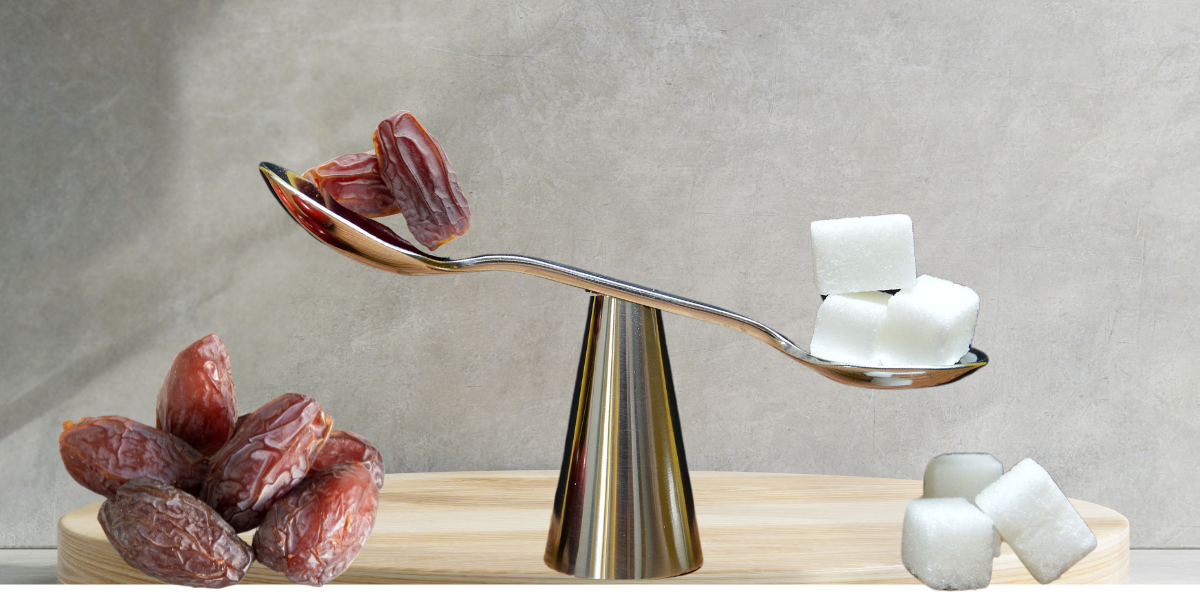What Everyone Should Know About This Confusing Ingredient
Sugar alcohol is showing up in everything these days - from your morning protein bar to your kid's sugar-free gum, and even in those "healthy" snacks lining the grocery store shelves. With manufacturers pushing sugar alcohol as the perfect solution to our sweet tooth cravings, it's easy to assume these ingredients are automatically better for our families.
But here's what I've learned through my own journey of trying to find truly healthy treats for myself and my kids: just because something is marketed as a healthier alternative doesn't mean it actually is. After countless hours of research and kitchen experiments that led me to start Bake Me Healthy, I've discovered some surprising truths about sugar alcohol that everyone should know.
What Exactly Is Sugar Alcohol?
Sugar alcohol falls under the broader category of sugar substitutes - basically anything that gives you sweetness without all the calories of regular sugar. But the world of sugar substitutes is pretty crowded, so let's break it down.
You've got artificial sweeteners like aspartame (the stuff in NutraSweet and Equal) and sucralose (Splenda). Then there are plant-based options like stevia extracts (Truvia, Pure Via) and monk fruit sweeteners. These are all different from sugar alcohol, though they're often lumped together in discussions about "healthy" alternatives.

Here's where sugar alcohol gets interesting - despite its name, it's neither sugar nor alcohol. Sugar alcohol is actually a type of carbohydrate that tastes sweet but contains fewer calories and carbs than regular sugar. You'll see names like sorbitol, xylitol, mannitol, and erythritol on ingredient lists.
While sugar alcohol occurs naturally in fruits like pineapples and prunes, and vegetables like mushrooms, the stuff in your packaged foods is typically made synthetically. The FDA has approved these sugar alcohol compounds for use as sugar substitutes in food products.
Are Sugar Alcohols Actually Safe for Your Family?
This is where the research gets complicated, and honestly, the answers aren't as clear-cut as we'd like them to be.
The Potential Benefits of Sugar Alcohol
Some studies suggest there might be benefits to using sugar alcohol instead of regular sugar. A 2022 review of 12 clinical trials found that people who switched from sugary drinks to beverages sweetened with low-calorie alternatives (including sugar alcohol) lost about 2-3 pounds on average. This was especially true for adults who were overweight or at risk for diabetes.
For people managing blood sugar, sugar alcohol doesn't cause the same dramatic spikes that regular sugar does, which can be helpful for diabetes management.
The Concerning Research About Sugar Alcohol
But here's where things get worrying. Longer-term studies on sugar substitutes, including sugar alcohol, haven't shown the weight loss benefits we'd expect, and some have even found potential harms.

The World Health Organization made headlines in 2023 when they recommended that people avoid using sugar substitutes (including sugar alcohol) for weight control or better health. They cited research linking these sweeteners to increased risks of Type 2 diabetes, heart disease, obesity, and even earlier death.
Specific types of sugar alcohol like erythritol and xylitol have been associated with higher risks of heart attack and stroke. Some research suggests that sugar alcohol might increase blood clotting risks, which could lead to cardiovascular problems.
The tricky thing about nutrition research is that it's incredibly difficult to pinpoint exact cause-and-effect relationships. There are so many factors that influence our health - genetics, overall diet, lifestyle, stress levels - that isolating the impact of sugar alcohol specifically is challenging.
The Digestive Issues You Need to Know About
Here's something that's much more immediately noticeable: sugar alcohol can wreak havoc on your digestive system. When consumed in larger amounts, sugar alcohol commonly causes stomach pain, diarrhea, and loose stools.
The reason this happens is pretty straightforward. Sugar alcohol is digested slowly, which gives it more time to feed the bacteria in your gut. This leads to fermentation, which produces excess gas. The slow digestion also pulls extra water into your colon, creating a laxative effect.
What Should You Do to Keep Your Family Healthy?
After all my research and personal experimentation, here's what I've concluded: the goal should be to minimize both processed sugar and sugar alcohol over the long term, rather than simply swapping one for the other.
The American Heart Association recommends that women consume no more than 25 grams of added sugar daily, while men should aim for no more than 36 grams. To put this in perspective, a single 12-ounce Coke contains 39 grams of sugar - already exceeding the daily limit for most people.
When your family wants something sweet, try reaching for naturally sweet options like fresh fruit, or look for treats made with minimally processed natural sweeteners like coconut sugar or date syrup.

This is exactly why I developed our Bake Me Healthy dark chocolate chip cookies. Instead of using sugar alcohol or refined sugar, we sweeten them naturally with date syrup. Our organic dark chocolate chips are sweetened with coconut sugar rather than artificial alternatives. No sugar alcohol, no digestive issues, no unknown long-term health risks - just real ingredients that taste incredible.
The Takeaway
-
When you're shopping for your family, take time to read ingredient lists carefully. Look for products that use whole food ingredients and natural sweeteners instead of sugar alcohol or artificial alternatives.
-
Sugar alcohol might seem like a quick fix for reducing sugar intake, but the research suggests it's not the health solution it's marketed to be. Between the potential cardiovascular risks, digestive issues, and questionable long-term benefits, sugar alcohol raises more questions than it answers.
-
Your family deserves treats that taste amazing without the side effects or health concerns. By choosing naturally sweetened options and being mindful of overall sugar intake, you can satisfy those sweet cravings while actually supporting your family's long-term health and wellbeing.


